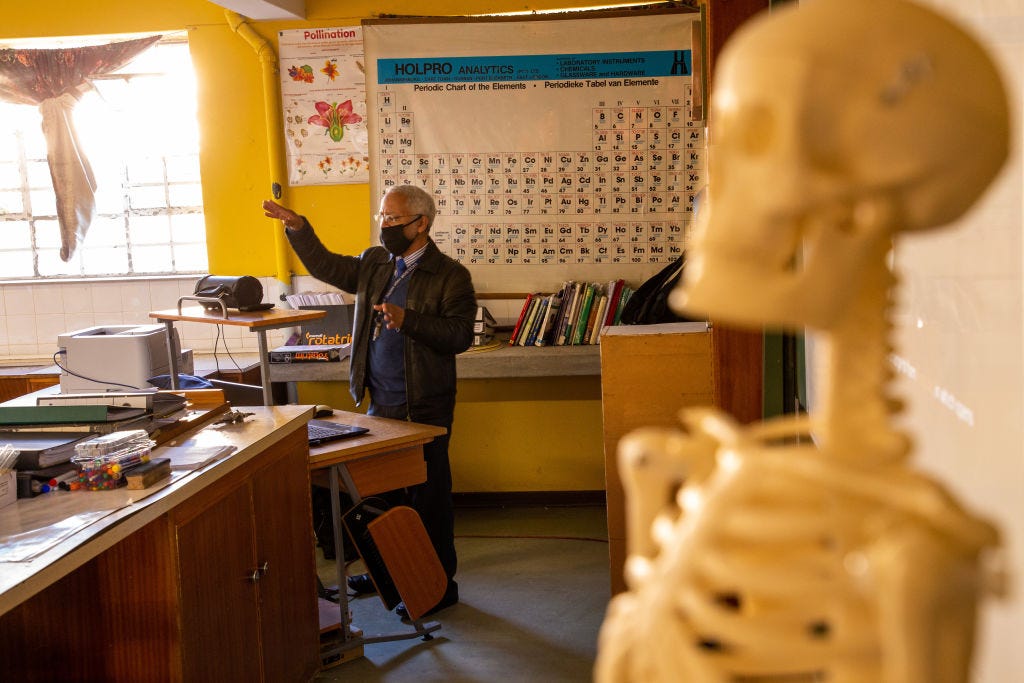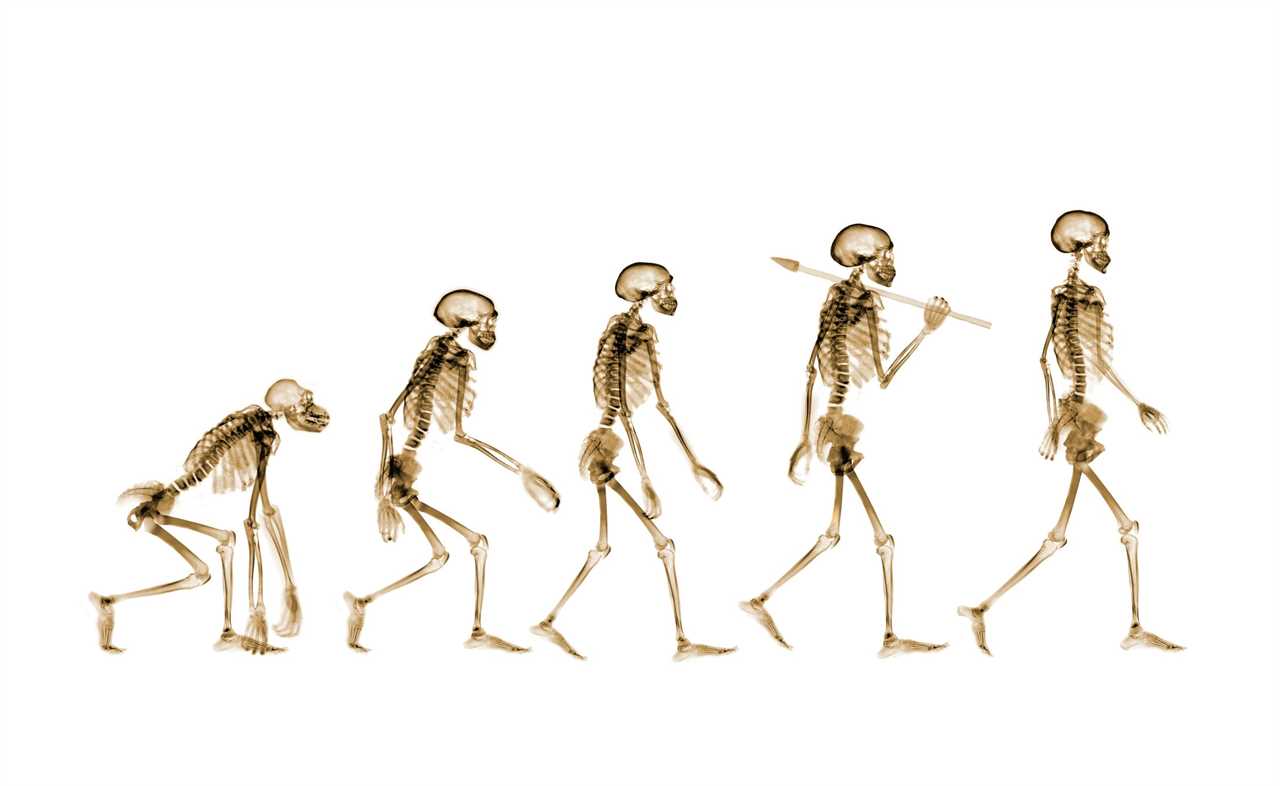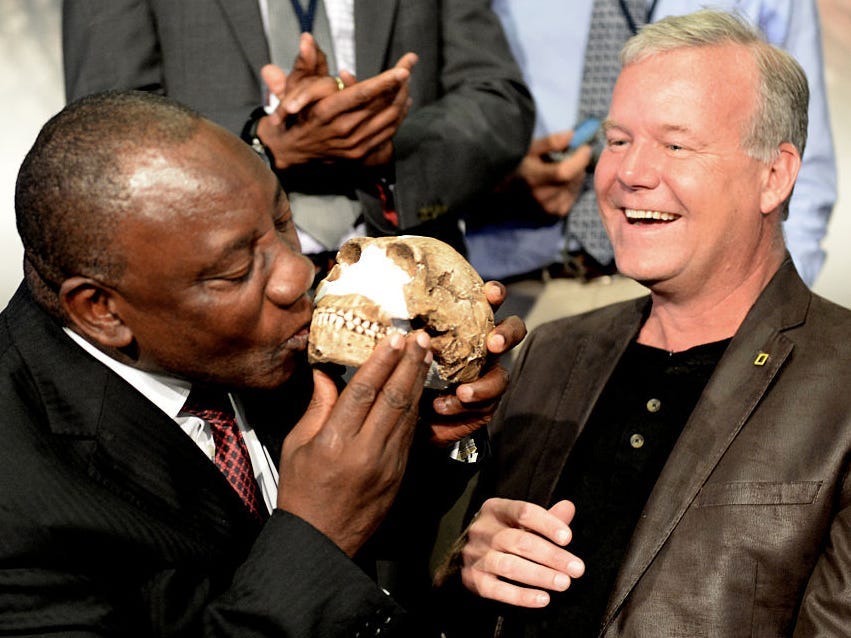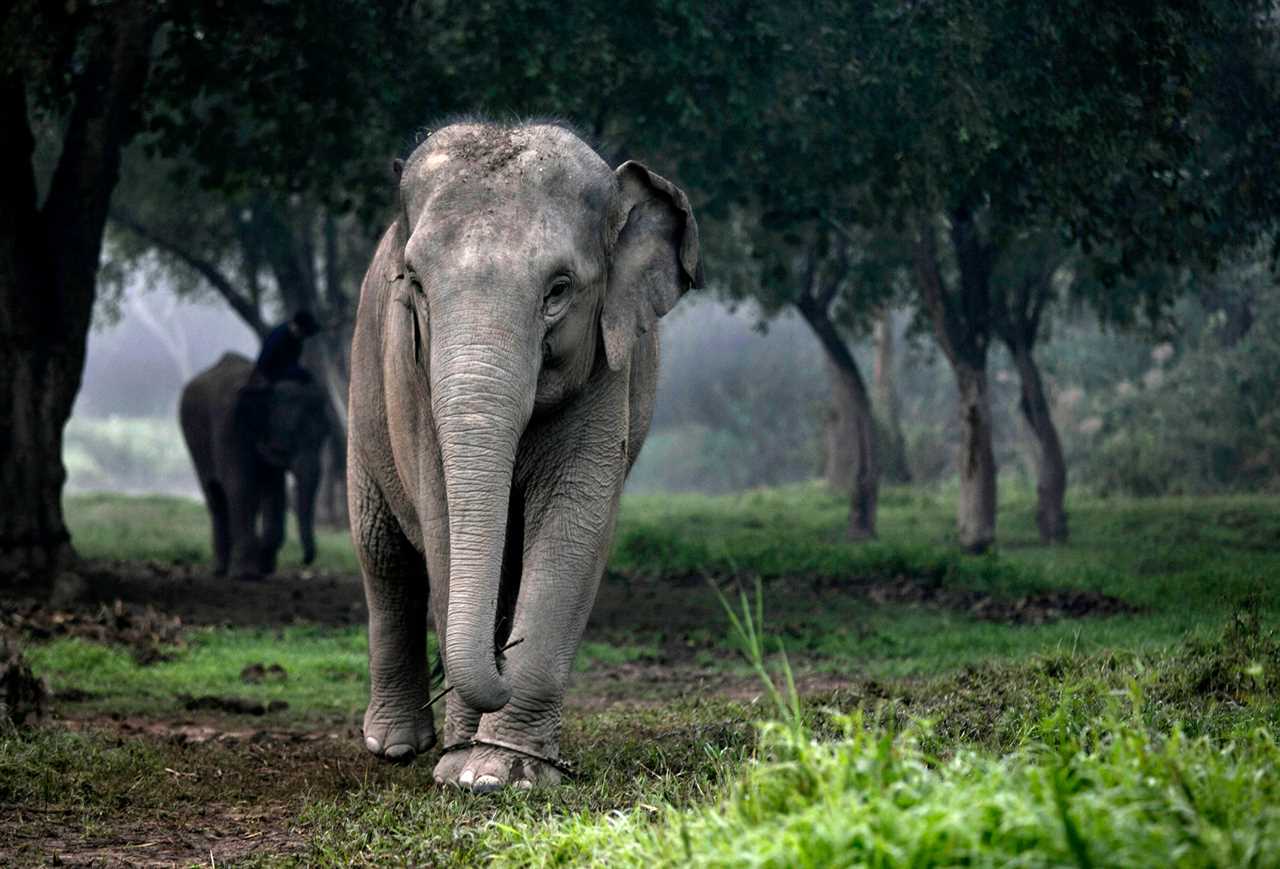Peter Macdiarmid / Staff / Getty Images
- Modern humans did not evolve from monkeys or any other animal that lives today.
- Humans continue to evolve but the traits we pass down aren't always for the species' betterment.
- "Survival of the fittest" probably doesn't mean what you think and has nothing to do with strength.

Gallo Images / Contributor / Getty Images
The overwhelming majority of scientists agree that humans evolved over time, yet misconceptions about human evolution persist in American society for a few reasons.
One reason is that evolution is complex, and easily drawn conclusions aren't always entirely accurate. In the past, politicians have misled the public about evolution in an effort to ban teaching the concept in public schools.
Accepting evolution is key to understanding the natural world and our place in it as humans, said Bridget Alex, a lecturer in human evolutionary biology at Harvard University and an editor for "SAPIENS" magazine.
But not everything you hear about evolution in soundbites or headlines is true.

Nick Veasey/Science Photo Library
Monkeys and humans share a common ancestor that lived about 60 million years ago, but humans did not descend from the monkeys we see today.
In fact, humans are actually more closely related to chimpanzees than monkeys, but we didn't evolve from chimpanzees, either.
The common ancestor we shared with monkeys diverged into separate lineages that eventually became the monkeys, chimpanzees, and humans we recognize today.
"It's the same way you maybe have siblings, and you descended from common parents, or you maybe have cousins, and you descended from common grandparents," Alex said. "That is, if we keep extending that and go back in time, say, 7 [million] or 8 million years, you'll find that you have the same ancestors as current living chimpanzees have."

Future Publishing / Contributor / Getty Images
Fitness is often associated with how physically strong and healthy someone is. But in evolutionary terms, fitness means the likelihood of passing on traits to offspring who are then likely to survive and have offspring of their own.
For example, if you compare someone who rarely exercises and eats a poor diet with someone who eats a well-rounded diet and runs marathons, you might say the runner is more "fit."
But if the person with unhealthy habits has 10 grandchildren and the other person has none, then the unhealthy person has higher evolutionary fitness than the person with a healthier lifestyle.
"It's not about how fast you can run or how much you can bench-press," Alex said. "Evolutionary fitness only cares about reproductive success."

Foto24 / Contributor / Getty Images
Traits passed down through generations aren't necessarily the best traits that contribute to a more advanced, improved species. Traits are passed down from individuals who were simply "good enough" within their environment to reproduce.
For example, fossils show human ancestors had much larger teeth than humans do today, likely due to changes in diet over the last 2 million years.
The size of human teeth today is not necessarily better or worse, but simply more suited to the current environment.
"Evolution cares about reproductive success, having offspring that survive and have their own offspring, passing on particular genes or traits, generation after generation," Alex said. "So if [evolution] doesn't go in a certain direction, it just responds to the local and current conditions."

Anadolu Agency / Contributor / Getty Images
Advancements in technology and medicine have allowed humans to modify our environments and live longer, and that doesn't mean we have stopped evolving.
"As long as our species continues having offspring, we're going to continue to evolve," Alex said.
One example involves groups of people known as Tibetan highlanders and Nepalese Sherpa who live at high altitudes.
Oxygen levels are lower at higher altitudes, making it difficult for people accustomed to lower altitudes to get enough oxygen to their cells, which can affect breathing and cognition.
But over thousands of years, Tibetan highlanders have evolved to thrive in a low-oxygen environment by evolving to produce fewer red blood cells.
Red blood cells help carry oxygen throughout the body, but too many thicken the blood and, like a traffic jam, slow down the process. With fewer red blood cells, that highway opens up and can quickly carry oxygen throughout the body with ease.

Paula Bronstein/Getty Images
It is true that organisms will continue to adapt to their environment no matter what humans do to the planet. But humans can and do have a negative impact on ecosystems, changing the world as know it.
"The harsh reality is that many of the animals, plants, and other organisms we know today are not going to survive the next century," Alex said. "Some of the big creatures we've been used to, like giraffes or elephants, their time on earth is probably limited because of human activities."
Climate change is perhaps the most obvious example of how humans can negatively impact ecosystems. Because of human activity that has contributed to climate change, warming temperatures are disrupting giraffe habitats and making food scarce.
Moreover, droughts brought on by climate change are also a threat to large mammals, like elephants and hippos, who rely on natural sources of water for drinking, bathing, and cooling off.
Peter Macdiarmid / Staff / Getty Images
This misconception comes down to a disconnect between how the general public uses the words "theory" and "fact" and how scientists use them.
People outside of the scientific community often use the word "theory" to describe an educated guess, hunch, or assumption about something unproven. This line of thinking also assumes a theory can become a fact when tested and proven.
But from a scientific perspective, that's not how theories and facts work. It's true that a fact is an indisputable observation that has been repeatedly confirmed, like that the sun is a star or that the human skeleton is made up of 206 bones.
But theories aren't guesses waiting to be tested. In scientific terms, a theory is an explanation of facts based on robust research.
The theory of evolution explains how organisms change and adapt to their environments. Other scientific theories include the theory of gravity, which explains why objects fall to the ground, and cell theory, which explains how cells make up all living organisms.
"In order for something to be a theory in science, it has overwhelming scientific evidence, usually from decades (if not centuries) of research and experiments," Alex said. "So if you agree with the theory of gravity, you should also agree with the overwhelming scientific evidence that supports the theory of evolution."
Read More
By: [email protected] (Erin Heger)
Title: 6 'facts' about human evolution that are wrong
Sourced From: www.businessinsider.com/human-evolution-myths-2023-3
Published Date: Tue, 28 Mar 2023 21:09:26 +0000
.png)





